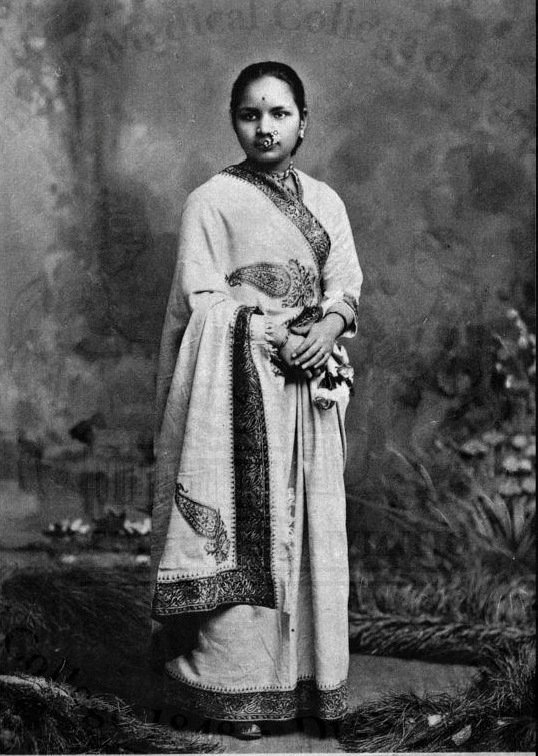Born Yamuna Joshi on 31st March 1865 in Poona, India, Dr. Anandibai Joshi was the first Hindu woman to obtain a medical degree in the Western Hemisphere. She studied in the Women’s Medical College of Pennsylvania, graduating with an MD in 1886, becoming the first Indian female doctor abroad with the topic of her thesis being ‘Obstetrics among the Aryan Hindoos’. This was groundbreaking for those times when India was lacking female doctors and midwifery was still the most common practice. In a public hall gathering in 1883, she expressed her views on how midwifery was not sufficient in any case of medical emergency and how the instructors who taught women had conservative views.

Anandibai was greatly supported by her husband, Gopalrao Joshi, in her education, something which was highly uncommon during the early 1800s. He wanted her to pursue her dreams and create her own identity in the world. Unfortunately, she was never able to practice medicine as she died at a very young age of 22 due to tuberculosis and was buried in the Poughkeepsie Rural Cemetry, New York.
Around the same time, in the British Indian town of Bhagalpur (then belonging to the Bengal presidency, currently located in Bihar), was another girl with big ambitions, Kadambini Ganguly. Kadambini Ganguly was born on 18 July 1861. Her father was a strong voice of advocacy supporting female education and also founded an organization called ‘Bhagalpur Mahila Samiti’ for women’s liberation in 1863. She cleared the entrance exam for Calcutta University becoming the first woman to pass the test as early as 1878. She studied science there and graduated along with Chandramukhi Basu in 1883, which made them the first two graduated women in British India.

After her graduation, Kadambini decided that she wanted to pursue medicine. This brought in a lot of disapproving remarks from society but she was determined to fulfil her dreams and got admitted to Calcutta Medical College in 1884. Ganguly was heavily criticised by the conservative society of her time. In the Bengali magazine, Bangabashi, Kadambini was indirectly called a ‘whore’. Her husband took this case to the court and the magazine’s editor Mahesh Pal served a jail sentence of 6 months for the same.
Called ‘the most accomplished and liberated Brahmo woman of her time’ by American historian David Kopf, Kadambini was married 11 days before she joined medical college and was a mother to 8 children but was known to never turn down any medical calls. Kadambini passed away on 7th October 1923, a few minutes after she returned from undergoing some emergency operations.




